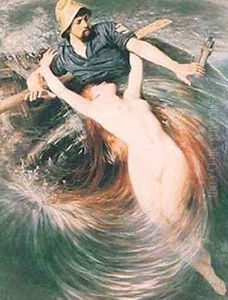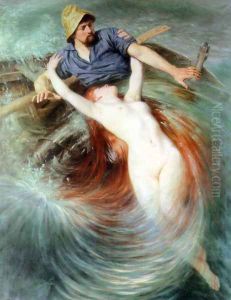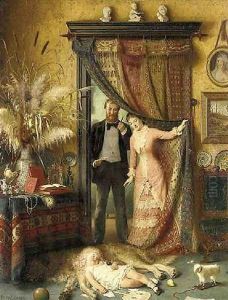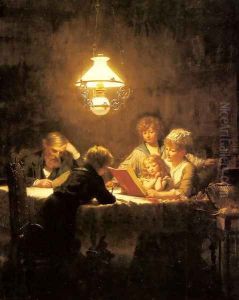Knut Ekvall Paintings
Knut Ekvall was a Swedish painter and illustrator, born in 1843 in Jönköping, Sweden. Ekvall's artistic journey began at a young age, reflecting a deep interest in capturing the essence of Swedish life, landscapes, and folklore through his works. He initially studied at the Royal Swedish Academy of Arts in Stockholm, where he honed his skills in painting and drawing, laying the groundwork for his future as an artist.
Ekvall's art is characterized by its detailed depiction of rural and historical scenes, often imbued with a sense of nostalgia and a profound connection to Swedish heritage. His paintings and illustrations frequently featured scenes from daily life, including fishermen, farmers, and historical figures, rendered with a keen eye for detail and a deep empathy for his subjects. Ekvall's works are notable for their delicate use of light and shadow, which added a dramatic quality to his depictions of Swedish landscapes and interiors.
Over the course of his career, Ekvall became well-known not only for his paintings but also for his illustrations, contributing to books, periodicals, and newspapers. His illustrations often accompanied texts that dealt with Swedish history and folklore, where his imagery seamlessly blended with narrative, enriching the storytelling with visual depth and historical authenticity.
Knut Ekvall's contribution to Swedish art was significant, capturing the spirit of his time and the essence of Swedish culture. His works remain cherished for their historical value and artistic beauty, offering a window into the soul of 19th-century Sweden. Ekvall passed away in 1912, leaving behind a legacy that continues to be celebrated in Swedish art history. His works are preserved in museums and collections across Sweden and serve as a testament to his skill, vision, and love for his homeland.



